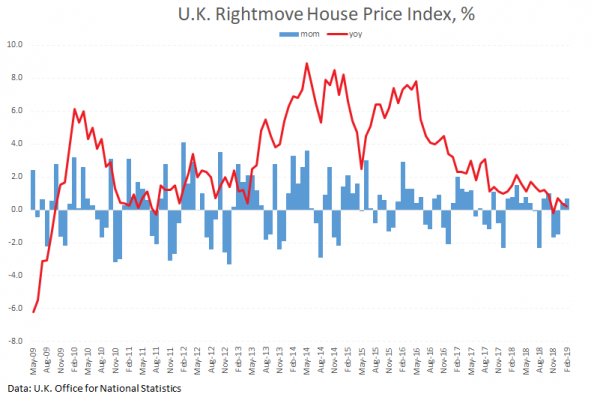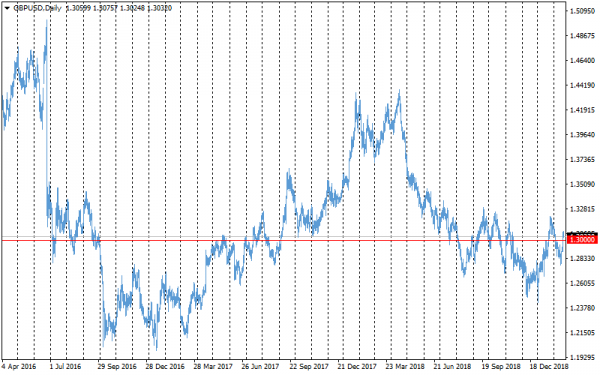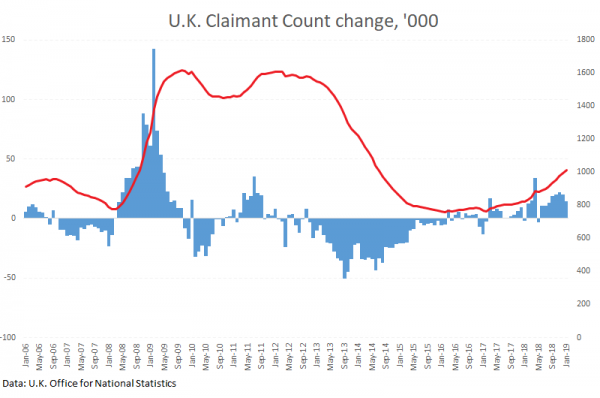Pound stronger
Yesterday the British pound crossed the threshold 1.30 after a sharp jump by more than 1.2%, continue its growth since Friday. The British pound growth is fuelled by hopes that May will be able to agree on the terms of a deal with the EU, which will be supported by the country’s parliamentarians. This helps the pound to overtake the market, including growth against the single currency.
It is also worth noting the general growth of demand for risky assets that prevails in the markets. On Wednesday morning, the positive dynamics has become a little more rest restrained, but still, the key global indices continue their growth.
For the British currency 1.30 looks like a key level, a kind of pessimism barometer around Brexit. Since last August, we have repeatedly seen how the arrow of this “barometer” moved from optimism to pessimism and vice versa. As the Brexit deadline is approaching (it is only 36 days left), we will probably continue to observe sharp jumps in both directions.
Exchange rate fluctuations and constant uncertainty clearly harm the economy, and its negative impact increasing as time passed. Under these conditions, pound growth is more looks like a bluff in poker.
Economy weaker
Last week, GDP data (a slowdown to 1.3% Y/Y), industrial production (-2.1% Y/Y in the manufacturing industries) and CPI collapse were unpleasant surprises. Yesterday’s report showed an increase of jobless claims for the eighth consecutive month, while housing prices, according to Rightmove, added only 0.2% over 12 months, well below the overall inflation rate at 1.8%.
Due to weak macroeconomy, it is difficult to count on the steady British currency growth. Moreover, national political news background is extremely volatile. 
After all, the GBP decline may be a stimulus for the economy, as it has repeatedly happened before, and politics knew it. The devaluation of the national currency, with relatively healthy external demand, increases the competitiveness of British goods, becoming a growth driver for the economy, as it was after the Brexit referendum.


